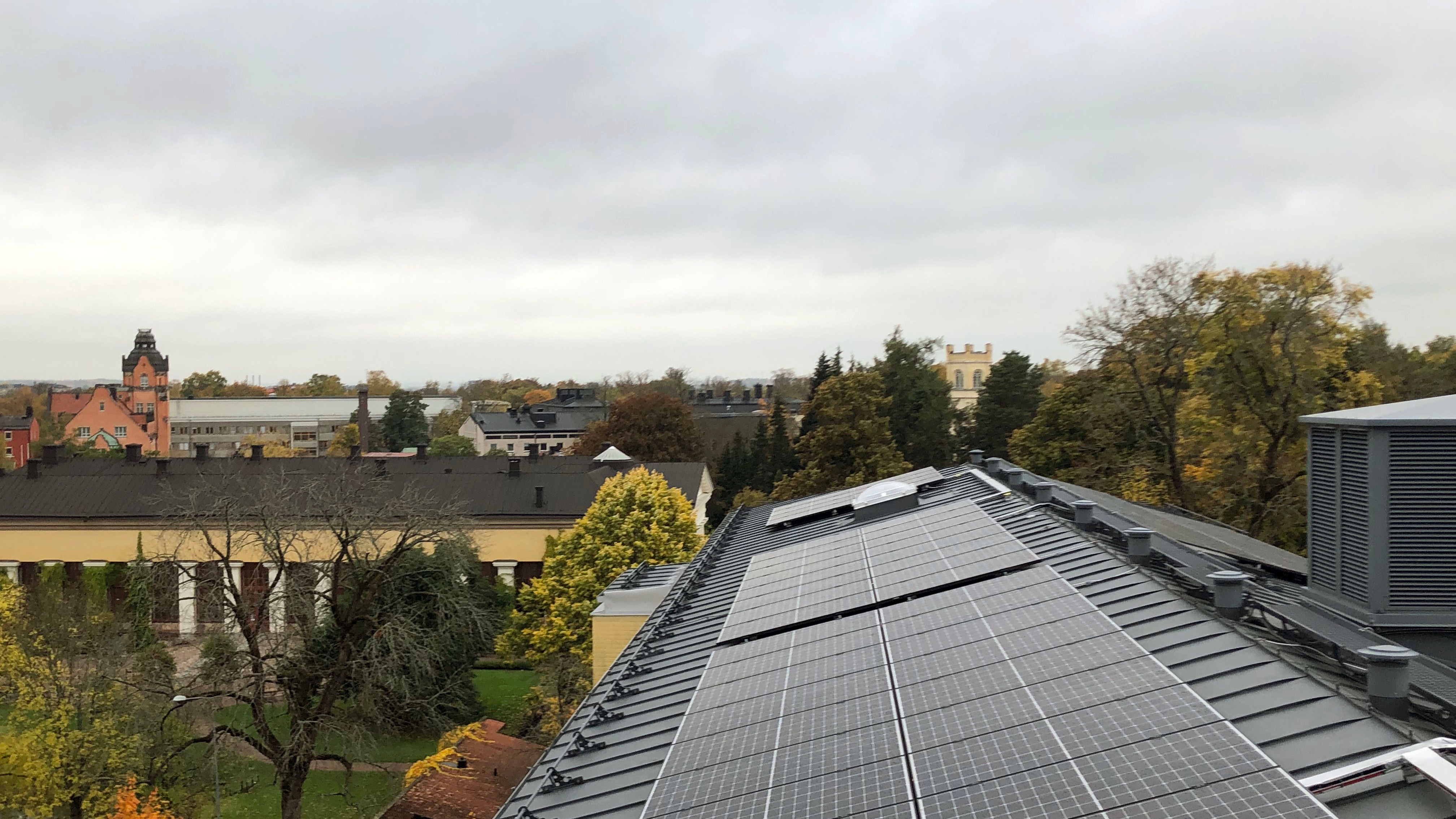Solar cells that produce a total of close to 700,000 kWh of renewable energy each year are now in place at seven of Akademiska Hus' buildings in Uppsala. The majority of the solar cells have been placed on roofs at Uppsala University and are part of the property owner's and the university's in-depth collaboration to jointly develop Uppsala University's physical environment for education, research and collaboration.
Akademiska Hus has invested SEK 15.5 million in the total of seven photovoltaic systems with a total area of approximately 4,200 m2 that have been installed in Uppsala. It is mainly roofs of buildings where Uppsala University conducts its activities that have been covered with solar cells, including House 16 in the English Park, Blåsenhus, Campus 1477 and Ekonomikum. The facilities produce approximately 520,000 kWh per year and enable the university's premises in the four buildings to be supplied to some extent with environmentally friendly solar.
The investment in solar cells at Uppsala University has taken place within the framework of the collaboration agreement that Akademiska Hus and the university entered into in 2019 and which in short means that the parties together will develop concrete projects that develop the university's physical environment while focusing on making campus even more sustainable. .
- Our biggest contribution to a sustainable future is to be involved and solve the major societal challenges through our research and education. But at the same time we will work to increase sustainability within our own organization and this project is part of that work. We are very happy about our collaboration with Akademiska Hus on sustainable campuses, says Anders Hagfeldt, Rector of Uppsala University, who himself has his research background in solar cell research.
Towards a zero vision
Akademiska Hus has high climate goals and has decided on a zero vision for its climate footprint. Important parts of the company's sustainability work are to reduce the amount of energy delivered and to invest in renewable energy sources. In addition to the solar cells at Uppsala University, Akademiska Hus has also installed facilities on the roofs at Rosendalsgymnasiet and Kunskapsgymnasiet and at its own office on Artillerigatan in Uppsala. These together produce about 180,000 kWh per year.
- Together with our customers, Akademiska Hus puts great effort into achieving a more sustainable energy supply and strengthening the green profile of our campus areas. With more solar cells on the roofs, we create energy-smart buildings at the same time as we contribute to the transition to a fossil-free society. In addition, we ensure electricity production and electricity use that takes place close to each other, which reduces transmission losses in the electricity networks, says Magnus Öhrman, group manager in energy and technology at Akademiska Hus.
About Akademiska Hus and solar cells
At present, Akademiska Hus has a total of 90 facilities in its property portfolio, which annually generates 8.2 million kWh of sustainable electrical energy for Swedish universities. In the next few years, the real estate company plans to take further steps by installing more facilities that, when completed, will contribute to Akademiska Hus' total amount of solar electricity amounting to more than 12 million kWh per year.
